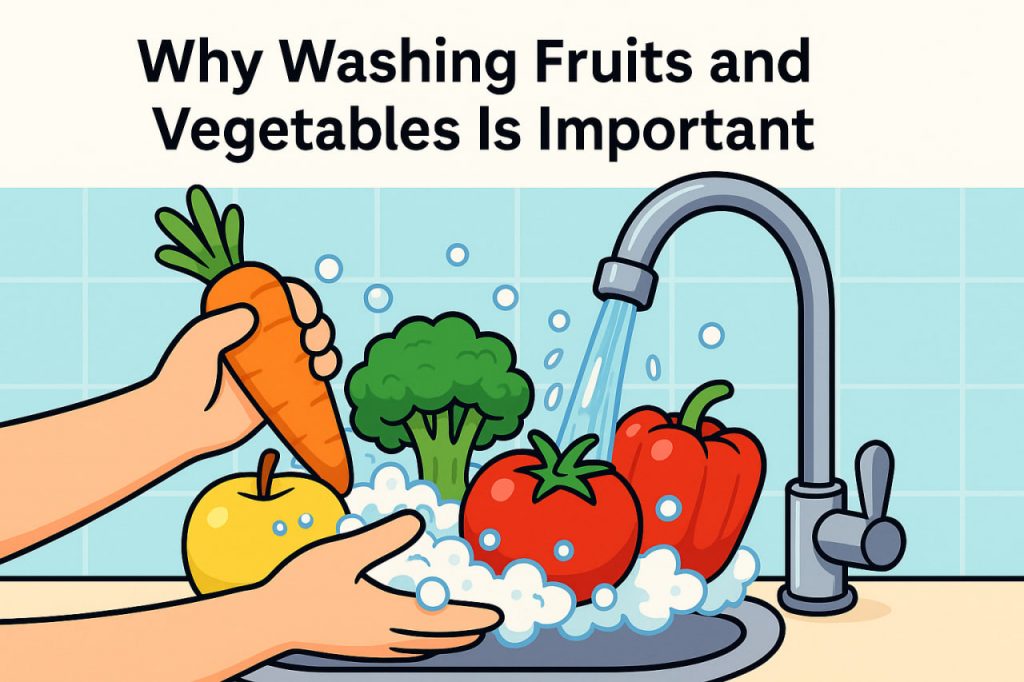Fruits and vegetables are essential to a healthy diet, but eating them without proper washing can expose your body to harmful substances. From dirt and bacteria to pesticide residues, there are multiple reasons why rinsing your produce is a simple but crucial habit.
What Might Be on Your Produce?
Even if fruits and vegetables look clean, they can carry invisible contaminants:
- Soil and dust from the ground
- Pesticide and herbicide residues used during farming
- Bacteria and parasites from animals, people, or dirty surfaces
- Waxes and preservatives used to keep produce fresh during transport
- Fungal spores or molds, especially on berries or leafy greens
These substances may affect your health, especially if the produce is eaten raw.
Health Risks of Unwashed Produce
Failing to wash fruits and vegetables increases the risk of:
- Foodborne illnesses like salmonella, E. coli, or listeria
- Intestinal infections from parasites or contaminated water
- Chemical exposure, particularly in children and pregnant women
- Allergic reactions in sensitive individuals due to residue buildup
According to the World Health Organization, millions of foodborne illness cases every year are linked to contaminated produce.
Proper Washing Methods
Washing doesn’t require special products—plain running water is usually enough:
- Rinse all produce under cool, running water, even if you plan to peel it
- Use a brush for firm items like potatoes or apples
- Soak leafy vegetables like lettuce or spinach in water and gently swish
- Dry with a clean towel or paper towel to remove any lingering contaminants
Avoid using soap or detergent—they can leave harmful residues not meant for ingestion.
Should You Wash Organic Produce?
Yes. Even organic fruits and vegetables should be washed because they can still:
- Be exposed to bacteria from the soil or handling
- Carry natural sprays used in organic farming
- Pick up contaminants during transport and storage
Washing helps keep all produce, organic or not, safer to eat.
When to Wash Your Produce
- Wash right before eating or cooking, not when storing
- Washing too early can cause spoilage or mold due to trapped moisture
- Store dry, unwashed produce in cool, ventilated areas to extend shelf life
This helps maintain both freshness and safety.
Other Tips for Safer Produce
- Wash your hands before and after handling produce
- Clean cutting boards and knives thoroughly
- Separate raw meat and produce to avoid cross-contamination
- Consider using a vinegar-water mix (1:3 ratio) as a natural rinse for added cleaning
Glossary
- Pesticides – Chemicals used to kill insects or weeds on crops
- Foodborne illness – Sickness caused by eating contaminated food
- Residue – Small amounts of substances that remain on produce surfaces
- Contaminants – Harmful substances or organisms on or in food
- Cross-contamination – Transfer of bacteria between foods or surfaces


